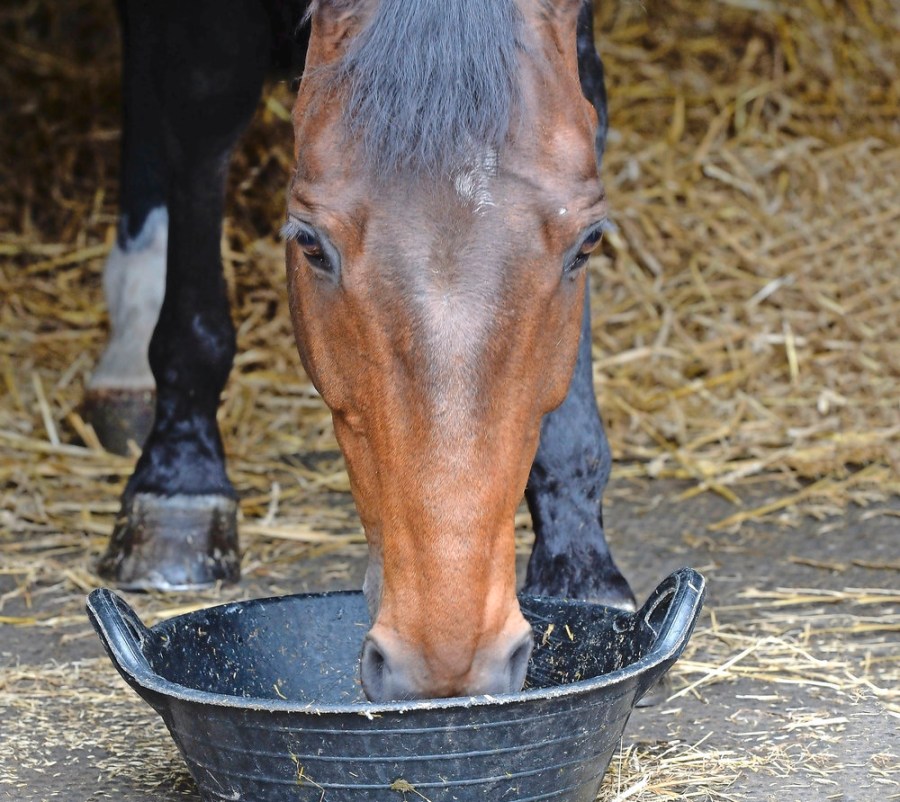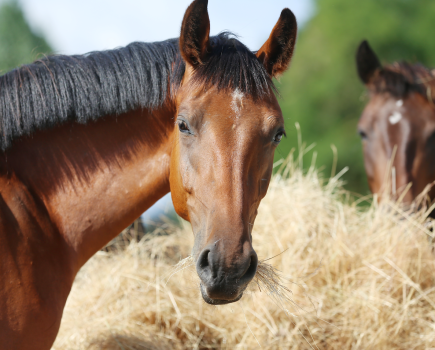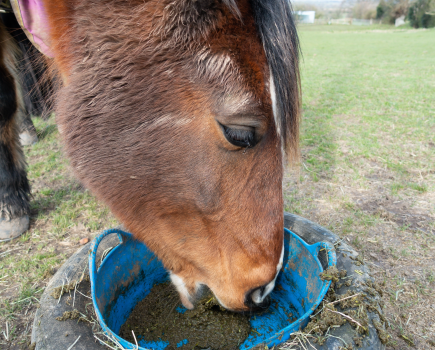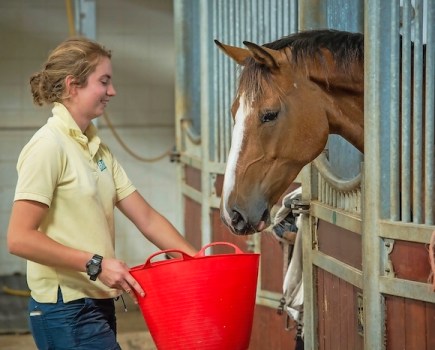Reducing your horse’s workload and not sure what to feed? Follow this advice from Jasmin Grogan, nutrition advisor at Baileys.
Q: I’ve got a 24-year-old ex-eventer who isn’t ridden anymore. I know I have to cut his feed now that his workload has reduced, but I’m not sure if I should do this gradually and what sort of feed (if any) I should change to?
A: Now that your horse’s workload has reduced his nutrient and calorie requirements will also change, so you’re correct to think about adjusting your gelding’s diet.
However, cutting out a feed completely can result in nutrient deficiencies and the diet becoming unbalanced.
If this happens, then multiple aspects of the horse’s overall health, condition, muscle tone, skin and hoof quality can be affected.
In regards to what to change your horse’s feed to and how best to do this, it will depend on:
- How your gelding generally maintains his weight and condition. For example, is he normally a good-doer or a poor-doer who struggles to hold his weight?
- If he has, or has history of, any clinical issues such as laminitis, gastric ulcers, colic etc
- His temperament? Is he laid back or more stressy/anxious and in need of exercise to relieve tension?
- Is his routine going to change dramatically now he’s out of work? Will he be turned out 24/7 or stabled some of the time?
- If your ex-eventer is a good-doer, then in this instance he’ll benefit from a feed balancer.
Balancers contain all the essential micronutrients your horse needs with a minimal calorie and energy contribution.
You can use this alongside fibre products such as chaffs and sugar beet, so you can adjust how many calories your horse consumes.
A quantity of fibre is also essential for supporting a healthy digestive system.
If your horse had previously been doing well on a high calorie and high energy ration diet, then dropping down to a balancer-based ration will see a drop in his energy and calorie intake, which could affect his condition.
In these case, it may be more suitable to find a feed with lower starch and sugar levels due to a higher fibre and oil content.
Don’t miss the latest issue of Your Horse Magazine, jam-packed with training and veterinary advice, horse-care tips and the latest equestrian products available on shop shelves, on sale now.









